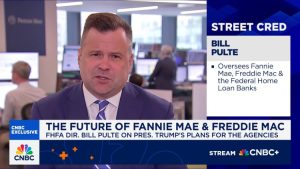In the ever-changing landscape of the stock market, sometimes the most intriguing stories lie hidden in the details. I’ve taken a closer look at increased short interest in British broadcasting behemoth ITV (LSE:ITV). So what’s going on, and what does it mean for the ITV share price?
Short interest surges
Hold onto your remotes, folks, because ITV’s short interest has just taken a dramatic leap. According to recent data, short interest in ITV shares surged by a whopping 35.3% in the latter half of August.
Short interest refers to the total number of shares that have been sold short but haven’t yet been covered or closed out. In simpler terms, it’s a measure of how many investors are betting that a share price will fall. When short interest is high, it means more people are wagering against the company’s success.
Is ITV’s share price in trouble?
The firm’s traditional TV advertising revenue has been under pressure as viewers increasingly shift to streaming platforms. Additionally, with the economy facing challenges, companies might tighten advertising budgets. The streaming landscape is also fiercely competitive; while the business has its own streaming service, ITVX, it faces stiff competition from global giants like Netflix and Disney.
Furthermore, the increasing costs of content production, driven by fierce competition for top talent and production resources, could put pressure on margins. As the company invests heavily in original content to compete with global streaming giants, there’s a risk that these investments may not yield the expected returns.
However, I think there are plenty of reasons to like the company. ITV Studios produces popular shows for platforms worldwide, providing a diversified revenue stream that could help offset declines in traditional advertising.
Perhaps most compellingly, the current valuation looks attractive. With a price-to-earnings (P/E) ratio of 7.4 times, lower than many peers, the shares could be undervalued, presenting an opportunity for investors. A discounted cash flow (DCF) calculation supports this, suggesting the fair value of the shares could be as much as 70% above the current price.
Financial health check
The shares have also shown resilience, hovering near a 52-week high of 89p.
The company has £340m in cash and £878m in total debt. This level of debt isn’t particularly concerning given the company’s market capitalisation and cash flow generation capabilities.
I think it’s worth looking at the numbers behind the short interest. Although this grew by 35.3% in a few weeks, with only 4,600 held short, it’s still less than the daily average volume of 7,300. So while it’s worth keeping an eye on, I don’t think it’s a trend to be concerned by.
Foolish takeaway
The surge in short interest certainly raises eyebrows, but it’s crucial to remember that the market is a complex beast. While increased short interest can be a red flag, it really depends on how this fits alongside the overall fundamentals.
I’d say that ITV presents an intriguing case study in balancing risks and potential rewards. With its strong content production arm, evolving streaming strategy, and attractive valuation, the firm might just have a few plot twists up its sleeve. I’ll be adding it to my watchlist.
This post was originally published on Motley Fool





